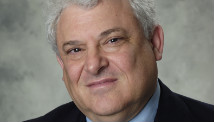From gun control to gay rights, President Barack Obama‘s second-term agenda is shaping up as an unabashedly liberal wish list.
In less than a week, he’s vowed to tackle climate change and protect government entitlements. His administration has lifted a ban on women in combat and expanded opportunities for disabled students. Proposals for stricter gun laws have already been unveiled, and plans for comprehensive immigration reform, including a pathway to citizenship for millions of illegal immigrants, are coming next week.
Obama’s full embrace of such an agenda suggests a president both freed for action by his re-election win and seeking to capitalize on it.
“There is a deep recognition that he has a short period of time to get a lot done,” said Jennifer Psaki, Obama’s 2012 campaign spokeswoman. “The American people are seeing a man who is determined to finish what he started in his first term, pushing through his agenda without the burden of running for re-election.”
But following through and winning approval for his proposals will require cooperation from a Congress that is nearly as divided now as it was before the November elections.
“If the president pursues that kind of agenda, obviously it’s not designed to bring us together,” said Senate Minority Leader Mitch McConnell of Kentucky, who calls the start of Obama’s second term “a new era of liberalism.”
And it’s not just congressional Republicans who could stand in Obama’s way as he seeks to make good on his pledges. Senate Democrats from conservative-leaning states — who, unlike Obama, still face future elections — may have reservations about backing a liberal agenda in the lead-up to the 2014 midterms.
Democratic resistance is already proving to be a problem for some of the toughest gun control measures that Obama proposed ahead of his inauguration in response to the elementary school shooting in Newtown, Conn. An assault weapons ban, in particular, appears to be in jeopardy, with Senate Majority Leader Harry Reid of Nevada among the Democrats yet to voice support.
Obama’s tilt to the left follows a presidential campaign that left open questions about what policies he would pursue if he won a second term. His most specific campaign pledge was to let George W. Bush-era tax cuts expire for the wealthiest Americans, a step he was able to achieve during the “fiscal cliff” negotiations in late December.
That’s why many of his strongest supporters were surprised — some pleasantly — by the issues he raised in his inaugural address, particularly his call for tackling the threat of climate change, a topic that garnered little attention during the campaign.
And after campaigning on a balanced approach to deficit reduction, including making tough choices on entitlement programs, Obama used his inauguration to extol the virtues of Medicare, Medicaid and Social Security. He made just one reference to the huge federal deficit.
Obama has previously said he’s willing to put government entitlements on the table as Washington seeks to reduce the deficit, and aides say his inaugural address doesn’t change that.
Obama also became the first president to use the word “gay” in an inaugural address, asserting that the nation’s journey is not complete until “our gay brothers and sisters are treated like anyone else under the law.”
Progressive groups welcomed the president’s rhetoric, but made it clear that words alone would not be enough.
Adam Green, co-founder of the political action group Progressive Change Campaign Committee, said that if the president’s inaugural address does become a template for his second-term governing strategy, “that will allow the president to win big victories and secure a legacy of bold progressive change that helped millions of Americans.”
“We hope he goes that route, and we will proudly rally to his side if he does,” Green said.
It remains to be seen how vigorously Obama pursues the agenda items he outlined in his inaugural address. White House officials have already struggled this week to back up his rhetoric with specific policy proposals
Still, people close to the president say he feels emboldened since winning re-election and wants to act quickly on progressive issues that eluded him during his first term. His supporters have also created a campaign spin-off organization to support his second-term agenda.
The outside group, Organizing for Action, will employ many of the same people who led Obama’s two presidential bids and will have access to his campaign’s voter and donor data. The new group is expected to focus on backing his positions in legislative battles, including gun control and immigration.
Some of what the president may pursue, particularly when it comes to climate change, may be through executive branch actions that don’t need congressional approval.
The Pentagon this week acted on its own to lift a ban that kept female service members out of combat positions. And the Education Department unilaterally ordered schools to include students with disabilities in sports programs or provide equal alternative options.
White House officials are scouring rule books for other actions the West Wing and government agencies can take on their own.
———
Associated Press writers Josh Lederman contributed to this report.
Also Read
Weather News Headlines – Yahoo! News
Title Post: Obama Presses Liberal Agenda as He Starts 2nd Term
Url Post: http://www.news.fluser.com/obama-presses-liberal-agenda-as-he-starts-2nd-term/
Link To Post : Obama Presses Liberal Agenda as He Starts 2nd Term
Rating:
100%
based on 99998 ratings.
5 user reviews.
Author:
Thanks for visiting the blog, If any criticism and suggestions please leave a comment

